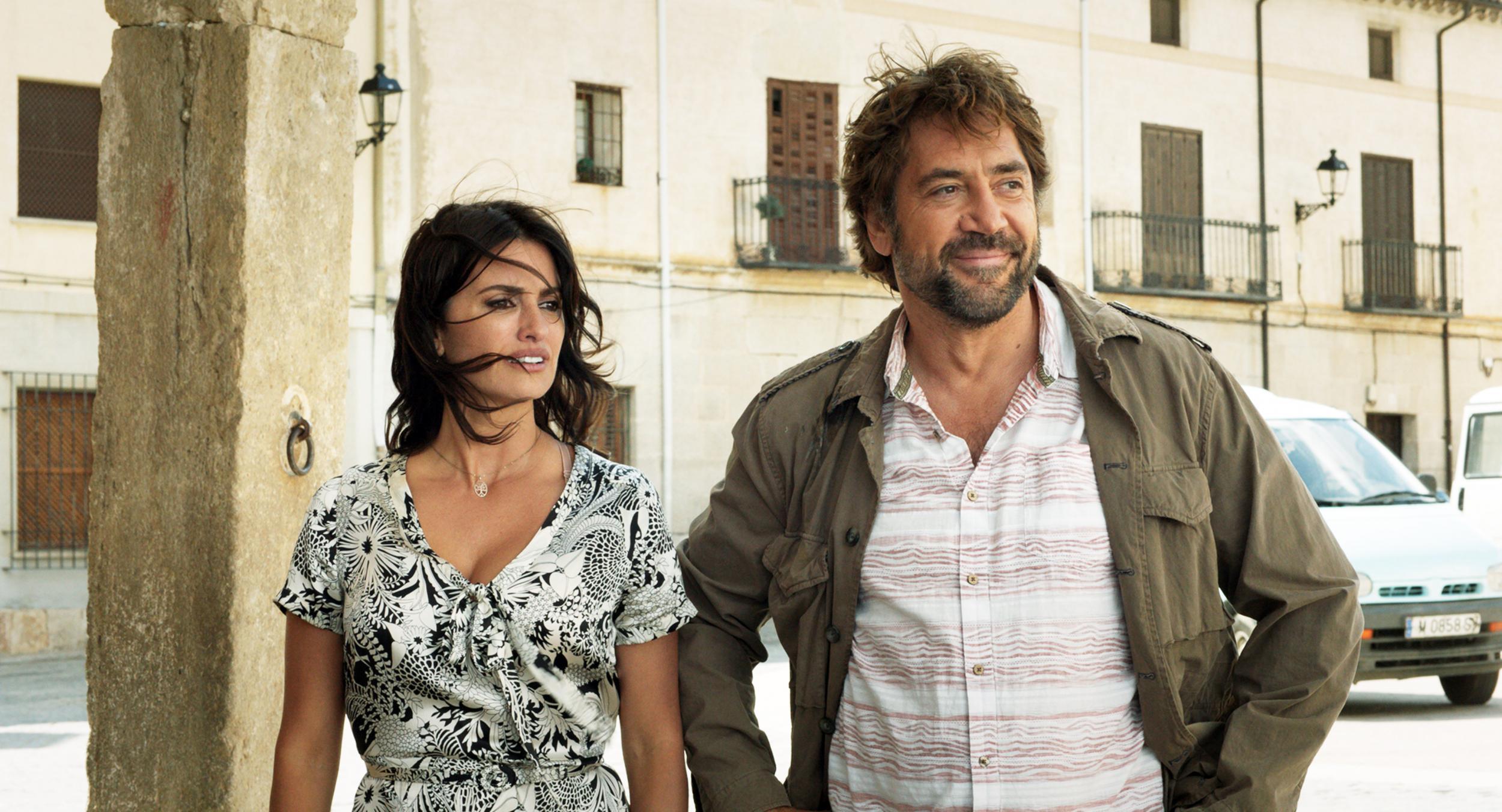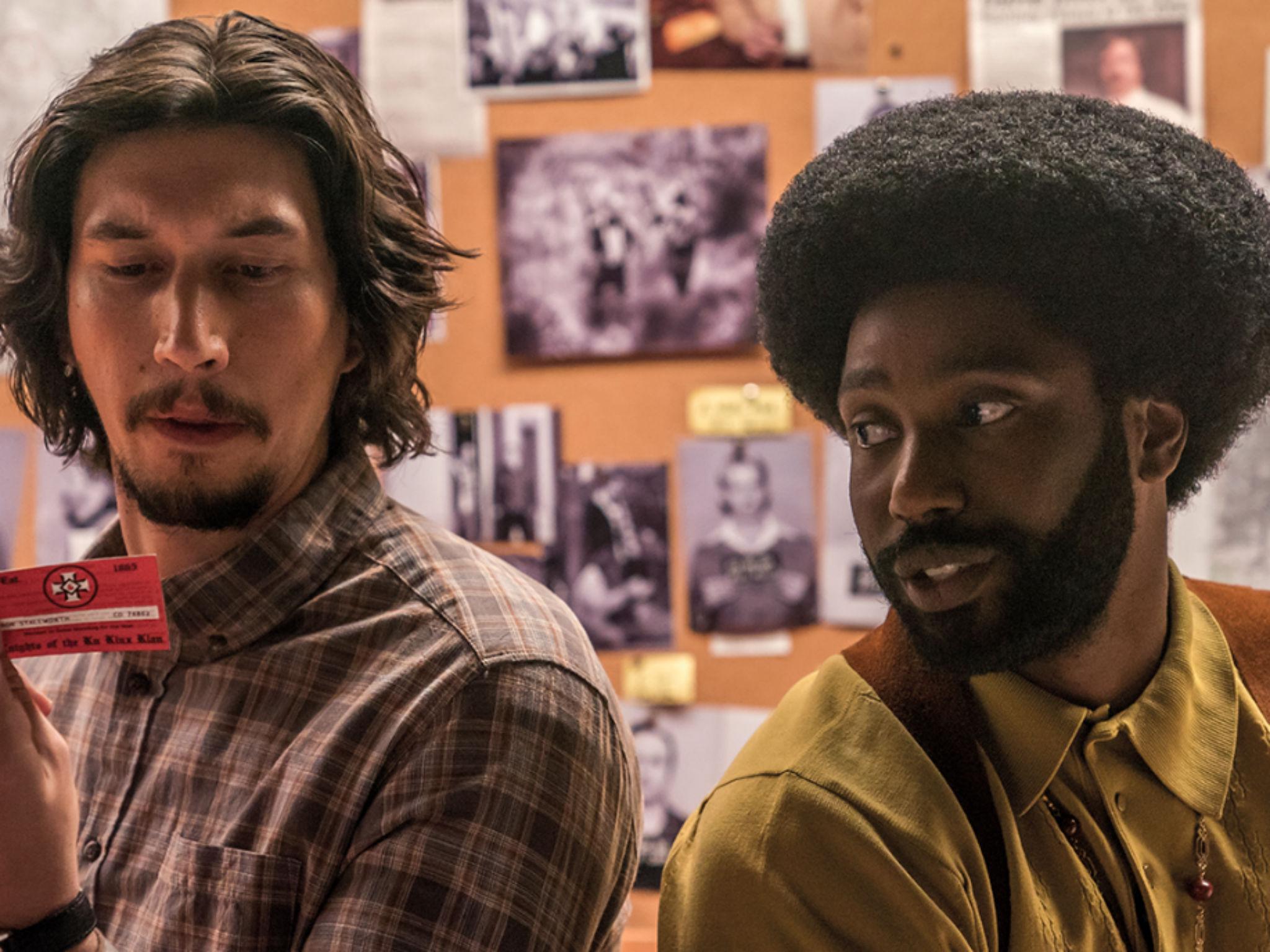Cannes 2018: another year of controversy, glamour and absurdity at the film festival
Cate Blanchett protests at industry sexism, Spike Lee rails against Trump, and documentaries on Whitney Houston and Orson Welles find favour

It would be exaggerating to say that Cannes at the beginning of last week was like a ghost town but the world’s flashiest film festival began in unusually subdued fashion. The organisers had brought the event forward a day and it seemed that the world’s press and many of the industry delegates hadn’t noticed. The vast subterranean halls of the festival Palais where the industry event, the Marché Du Film, is based, were very empty.
Everyone in Cannes likes to complain, even if they are secretly very glad to be there. Reviewers were grumbling about new screening arrangements which meant that they couldn’t see or write about the films in advance of their official red carpet premieres. With their usual perversity, well-heeled distributors expressed their disappointment that they were able to get tables in their favourite restaurants. In normal, busier circumstances, they would have had to book months in advance.
At least, the opening ceremony itself was a glittering affair. This was the first Cannes since the Harvey Weinstein scandal broke. The festival had chosen only three films in the main competition – Eva Husson’s Girls Of The Sun, Alice Rohrwacher’s Lazaro Felice and Nadine Labaki’s Capernaum – directed by women. To make up for the oversight, the main competition jury included five women on it and was chaired by Cate Blanchett. They all came on stage. The statuesque Blanchett was joined by the much smaller Martin Scorsese to declare the event officially open.
Later in the week, Blanchett was to lead 82 women up the red carpet in a silent protest against the small number of female directors who’ve been chosen for the main competition over the event’s history: 82 as against 1,688 male directors, a scandalous ratio.
Asghar Farhadi’s opening night film, Everybody Knows, proved to be underwhelming. The Oscar-winning Iranian director was working in Spanish for the first time with Penelope Cruz and Javier Bardem as his stars. The film turned out to be an embroiled and deeply contrived family melodrama focusing on a kidnapping of a teenage girl in a small Spanish town. It didn’t have either the subtlety or the intensity of the director’s Iranian work.
During the torpid opening days of the festival, the main point of interest for the press was the long rumbling dispute between Portuguese producer, Paulo Branco, and the team behind Terry Gilliam’s The Man Who Killed Don Quixote. Two years ago, Branco had arrived in Cannes presenting himself as the saviour of the project and announcing that Adam Driver had been secured as its star. However, by this time last year, Branco had been shunted off the project and was insisting that it could not be exploited commercially without his approval.
“Señor Branco is tilting at windmills. He has no rights whatsoever in Don Quixote,” the film’s producers had insisted but that didn’t stop Branco from bringing court cases against the production. For a while, it looked as if the film’s festival screening would be scrapped – but the festival won the first legal skirmish. Festival director Thierry Frémaux announced with delight that the screening could go ahead. The British were happy too. Gilliam may be American-born but he has been regarded as an honorary Brit since his Monty Python days. His Don Quixote film, which has been decades in the making, at least added a British flavour to a festival in which hardly any other films from the UK were programmed.

One British film which did screen in the festival’s “Cannes Classics” section was Mark Cousins’ beguiling documentary, The Eyes Of Orson Welles. Cousins had secured access to a vast hoard of sketches and painting by Welles, most of them never seen before. In the film, he makes the argument that Welles’s filmmaking was an extension of his drawing; that he was a “visual thinker.” At the premiere, Cousins brought along a drawing Welles had made of Father Christmas. As he pointed out, with Welles, you go very quickly from the bonhomie of Santa Claus to the desolation of King Lear, the comic pathos of Falstaff or the corruption of the obese cop Welles played in Touch Of Evil.
Cousins provides the narration to his own documentary, which takes the form of a long letter to Welles. One drawback to his wonderfully lilting and gentle listen with mother-style voice is that it sent at least some of the spectators at his premiere straight to sleep.

Watch Apple TV+ free for 7 days
New subscribers only. £8.99/mo. after free trial. Plan auto-renews until cancelled

Watch Apple TV+ free for 7 days
New subscribers only. £8.99/mo. after free trial. Plan auto-renews until cancelled
Scottish director Kevin Macdonald presented his heartbreaking new feature documentary, Whitney, about the life, triumphs and squalid death of Whitney Houston. In the film, Macdonald revealed that Houston had been the victim of sexual abuse as a child. It is speculated that this may have been what caused her life later to unravel. The film has the same impact as Asif Kapadia;s Amy Winehouse documentary, Amy. You watch it hoping against hope that it won’t end in the awful way that it does.
Cousins and Macdonald apart, the British may have been conspicuous by their absence in official selection but British executives were involved both as financiers and producers on one of the best films in competition, Pawel Pawlikowski’s Cold War. Likely to be among the frontrunners for prizes this weekend, this is the story of a young Polish singer, Zula (Joanna Kulig) and of her very turbulent, decades-spanning love affair with composer, Wiktor (Tomasz Kot). Shot in black and white, the film takes us from post-war Poland, where Zula sings propagandistic folk songs, to Paris in the 1950s, where she blossoms forth as a Piaf-like chanteuse.
Often at Cannes, the world’s media and the industry delegates will arrive at the beginning, stay until after the first weekend and then rush home again. Their exodus sucks out all the energy from the second half of the festival. Fremaux and his team tried to prevent the usual mass migration by programming the big English-language films during the second week. These included not just the new Star Wars movie, Solo (an unlikely premiere at a festival celebrating art house cinema) and David Robert Mitchell’s noirish drama Under The Silver Lake, starring Andrew Garfield, but the latest features from two of world cinema’s most incendiary arch-provocateurs.
Spike Lee was first up with BlacKkKlansman, about a black cop who infiltrates the Ku Klux Klan. This received a standing ovation. Lee then used his press conference to rail against the “motherfucker” currently resident in the White House and who had so flagrantly missed his chance to denounce “motherfucking Klan, the alt-right, and those Nazis motherfuckers.”
After a blast of Spike Lee, it was time for the return of the prodigal son, Lars von Trier, the Danish director who had been a favourite in Cannes until his ill-advised remarks about Adolf Hitler at a press conference in 2011. He claimed then he was speaking tongue-in-cheek but was still declared persona non grata by the festival. This year, his ban was lifted and he turned up with his serial killer film, The House That Jack Built. True to form, the Von Trier film, which stars Matt Dillon as the homicidal maniac, completely divided audiences. Some walked out in disgust as its sheer bloody grotesquerie and high body count. Others found it “bold,” “subversive” and “stimulating.”

Venerable star Jane Fonda was in town to introduce the festival premiere of Jane Fonda In Five Acts, a new HBO-backed film which tells the story of her extraordinary life. In the documentary, Fonda speaks very frankly indeed about everything from how much vodka she drank before the nude scenes in Barbarella to her mother’s suicide. She deals in depth with her troubled relationship with her father Henry Fonda and talks about her immense regret about the “Hanoi Jane” incident when she travelled to North Vietnam at the height of the Vietnam. She met American POWs, was photographed beside Vietnamese guns and was branded a traitor for doing so. We also learn that her exercise video, Jane Fonda’s Workout, was made to raise money for her political causes. (It is still one of the best-selling videos of all time.)
After its torpid start, this year’s Cannes festival became very much livelier. Foreign distributors were relieved to discover that Netflix and Amazon Studios hadn’t bought up everything (as they seemed to do last year). The Croisette, the festival’s main sea-front thoroughfare, was as crowded as ever. It didn’t rain until Sunday, which meant that the big parties could still be held in the open air. There were more Chinese delegates at the festival than ever before.
Another surprising trend was that the festival seemed awash in animation, not all of it aimed at kids. For example, screening out of competition was Polish animated feature, Another Day Of Life, based on the book by the celebrated Polish journalist Ryszard Kapuściński about his experiences in war-torn Angola in the mid-1970s. Despicable Me this wasn’t.
As ever, it is impossible to second guess where the jury will award its main prizes at the weekend. A relatively unheralded film, South Korean director Lee Chang-dong’s love triangle drama Burning, is currently leading most of the critics’ polls. Another Asian feature, Kore-eda Hirokazu’s latest family melodrama Shoplifters, was also rapturously received.
The films that screen in Cannes often take a small eternity (up to a year) to reach British cinemas – and some never make it. Whitney, though, is in British cinemas in early July and is well worth catching – a documentary with the emotional force of a Hollywood tearjerker. The Eyes Of Orson Welles should also surface soon and will intrigue all fans of Welles. It is heartening, too, that Godard’s The Image Book, formally the most radical film in the Cannes competition, has secured a UK release. Enrapturing and infuriating by turn, this is one of the director’s polemical film essays. It manages the unlikely feat of proclaiming the death of cinema in an extraordinarily cinematic way.
What is clear from all these films, however long they take to reach a cinema near you, is that the doom-mongers who claim that the festival is dying are very wide of the mark. This year’s edition may have been slow to get going but it eventually served up the usual potent, Riviera mix of controversy, glamour and absurdity alongside some very fine movies. It had everything from ancient auteur Jean-Luc Godard giving the press conference for his latest feature, the aforementioned The Image Book, via FaceTime to the colourful pantomime of a Star Wars premiere. The festival remains the one place at which the hardened cinephiles, the paparazzi and the party goers are all equally welcome.
Join our commenting forum
Join thought-provoking conversations, follow other Independent readers and see their replies
0Comments